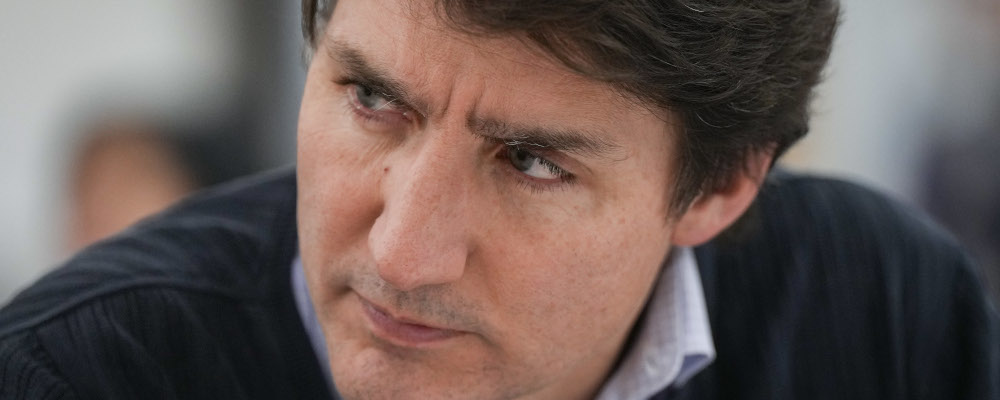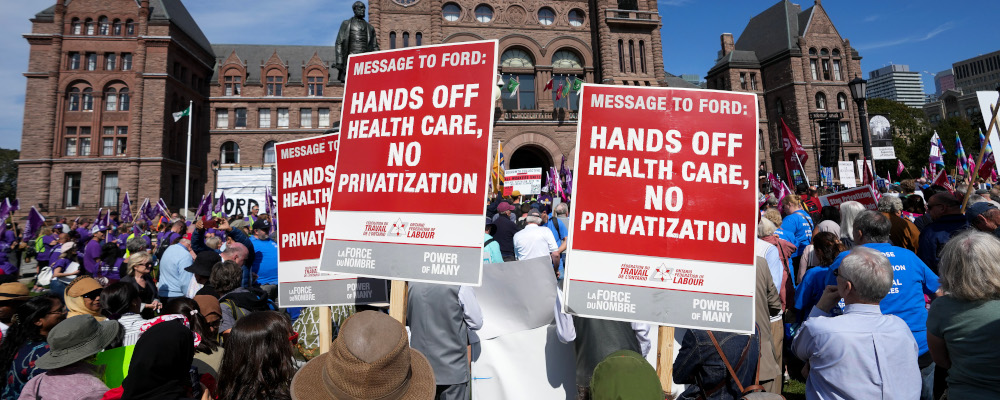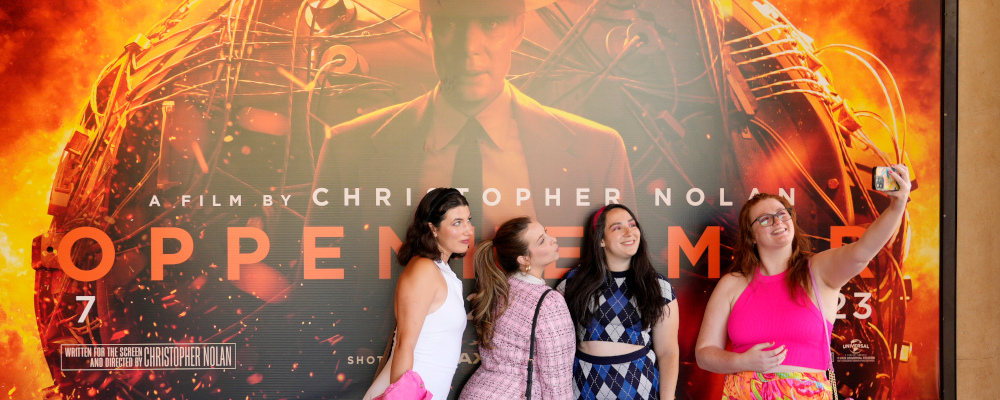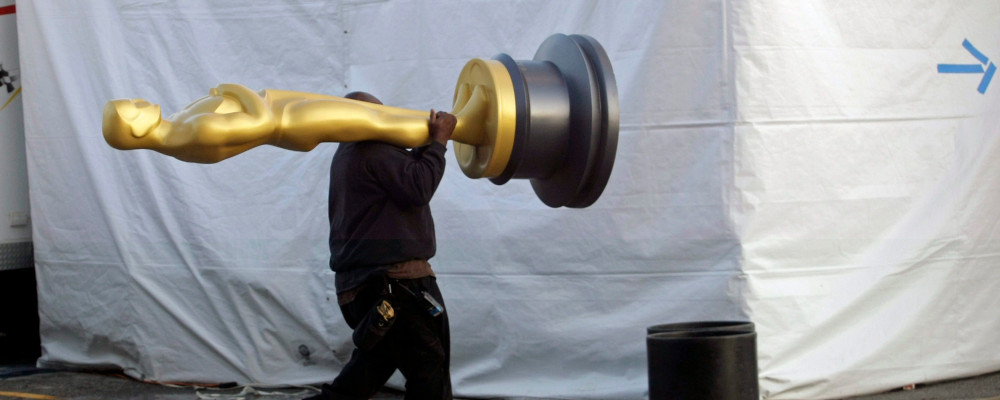This week‘s edition of The Hub’s Weekly Wrap reflects on some of the past week’s biggest stories, including what the upcoming federal budget might bring, new polling showing increasing support for private health-care options, and recent criticisms from both the Left and the Right.
Will a desperate Trudeau double down on class conflict to save his skin?
This week we learned that federal Finance Minister Chrystia Freeland will table the budget on April 16, which is one of the latest budgets outside of an election or some other extenuating circumstances in forty years.
The minister was generally circumspect about the budget’s priorities, though she did nod to the anticipated inclusion of pharmacare. National Post columnist John Ivison wrote that it’s likely to be a free-spending budget in light of the government’s struggle for its political survival.
But the budget’s real story may not be new spending. It may instead come in the form of new taxes targeting big business and wealthy individuals. The Trudeau government might just try to survive by appealing to class warfare.
The Hub published an article this week by the Business Council of Canada CEO Goldy Hyder that warned about growing rumours that the government is considering an excess profits (or “windfall”) tax on large corporations.
The basic details are somewhat unclear, but the Trudeau government has previously imposed excess profits taxes on banks and life insurance companies and threatened them on the grocery sector. The implication here is that they could be extended to other parts of the economy.
The negative effects of such a policy in terms of employment, investment, and wages could be significant. A report last year for the European Parliament for instance warned that windfall taxes can create big distortions—particularly in a globalized economy. The result could be a lot of economic damage without much revenue upside.
The same goes for the persistent rumour that the government is thinking about using the budget to signal a new wealth tax that would draw an outstanding NDP proposal and popular thinking within progressive circles. One estimate is that such a tax could generate as much as $30 billion in federal revenues—though it must be said that these estimates depend on high “exit taxes” and even the imposition of strict capital controls.
A wealth tax on high net-worth individuals would thus face broadly similar economic problems as a windfall tax on corporations. There are also some technical challenges that cannot be overstated.
But technocratic arguments against these proposals sort of miss the point. The government won’t move forward with them based on economic or fiscal considerations—it’s not like the Trudeau government is now suddenly concerned about deficits after effectively doubling the national debt.

The true motivation here would be to use tax policy to precipitate class conflict in our politics. Its main political purpose is to effectively wedge Pierre Poilievre and the Conservatives into defending large corporations and wealthy Canadians. This isn’t evidence-based policy or high-minded idealism. It’s cynical politics and naked populism.
It may not be as politically propitious as the government might think either. Although polls indicate that Canadians generally favour higher taxes on corporations and high-income earners, there’s also compelling evidence that people are more concerned about fairness than equality. They’re even prepared to live with higher levels of inequality if they’re satisfied that the economy is fundamentally meritocratic rather than tilted in favour of certain companies or individuals.
It’s possible therefore for Pierre Poilievre and the Conservatives to be strongly in favour of eliminating foreign ownership restrictions or tax preferences that disproportionately benefit high-income earners or other measures that would level the playing field when it comes to the market’s distribution of income and wealth and still oppose these potential tax hikes which are ultimately about leveling outcomes rather than enhancing fairness.
If next month’s budget contains some combination of windfall and wealth taxes, Conservatives shouldn’t take the bait. They should call it out for what it is: a desperate move that won’t do anything to help Canadians because that’s not the point.
It’s time to have the private health-care conversation
Ipsos released a new poll this week that found, contrary to popular political commentary, a sizeable majority in favour of private health care for those who can afford it and greater private delivery within the public insurance model. This is a big deal.
Think about it: nearly two-thirds of Canadians say that they’re in favour of “two-tier” health care which no politician is actively proposing. It signals that the political class is well behind the public and represents the conditions for an enterprising politician to advance a more ambitious agenda.
We certainly need it. Not only are general wait times at an all-time high, but we’re now increasingly encountering on a daily basis excruciating stories of 20-hour emergency room waits, large-scale hospital overoccupancy, and adverse health consequences, including avoidable deaths.
The facts overwhelming point in the direction of some kind of market-based reform. Polls show that Canadians instinctively understand it. Yet too many politicians dogmatically cling to the status quo even as the system collapses around them.
Federal health minister Mark Holland for instance recently said that “we’re not going to allow that [greater private delivery] to happen.” This isn’t an expression of evidence-based policy. It’s a quasi-religious statement.
Holland and to be fair a lot of politicians—including some conservatives—are seemingly prepared to trade off worse health-care outcomes in exchange for a false fidelity to the principle of equality—even if it ultimately means equal misery and suffering.
Conservatives often get accused of being ideologues in today’s political climate. But is there anything more hyper-ideological than defending a system that’s self-evidently producing such bad outcomes and that a majority of Canadians say requires fundamental reform? It’s like persisting in the view that the earth is flat long after it had been proven otherwise.
Some day people will no doubt look back on the past 30 years of health policy debates in Canada and think that we were crazy. We’ve collectively accepted an egalitarianism of poor outcomes even though various other jurisdictions have matched our commitment to equality without people dying because of rationing and scarcity.
The Ipsos poll tells us that this attachment to a failed system isn’t an example of the public wagging the dog. It’s a case of elite failure. Hard-core ideologues in politics and universities (including law deans and medical school chairs) have substituted their own political preferences for the rest of us. The outcomes have been tragic in some cases.
Here’s the good news: last year, many health-care reform proponents were disappointed that the Supreme Court of Canada wouldn’t take up the Cambie Case which sought to invoke Section 7 of the Charter of Rights and Freedoms to open the door to reform to Canada’s single-payer model. It seems increasingly clear that we won’t need jurisprudence to produce much-needed reforms. They’re increasingly attainable through the democratic process.

On ordered liberty, neoliberalism, and profoundly missing the point
One of the consequences of being engaged in the world of ideas is that it inevitably comes with both criticism and mischaracterization. This week we received both—including from the Left and the Right.
Left-wing social media personality David Moscrop wrote in The Tyee about a recent Weekly Wrap that was favourable to Conservative leader Pierre Poilievre’s support for restrictions on online pornography for minors. In particular, he criticized the intellectual basis for such a policy position—what we termed “ordered liberty”—as an oxymoronic and ultimately politically-motivated crackdown on “historically marginalized individuals and groups.”
There are various problems with his line of analysis. A big one is that the idea of “ordered liberty” is neither my ideological formulation nor one conceived by Stephen Harper or Jason Kenney. Edmund Burke, the father of Anglo-American conservatism, wrote in 1774 that the only true liberty is “a liberty connected with order: that not only exists along with order and virtue but that cannot exist at all without them.” The conservative tradition since its founding has been rooted in an ongoing dialogue between liberty and order.
The bigger problem though is an apparent lack of self-awareness. Moscrop, a self-avowed socialist, accuses Poilievre of intellectual inconsistency for generally being pro-freedom but calling for government intervention in the particular case of online pornography for minors. Yet his entire worldview is replete with inconsistencies between a maximalist view of human freedom and a vision for a socialist state. How else does one describe his support for adolescents to change their gender without parental consent on the one hand and large-scale public ownership or confiscatory taxes on the other hand? The only connective tissue between this combination of unconstrained social autonomy and economic statism is the kind of radicalism that Burke observed in France.
Not to be outdone: Financial Post columnist Terence Corcoran wrote a sharp critique this week of my recent Hub essay on the growing intellectual and political challenges to neoliberalism. I thought the essay (“We need neoliberalism now more than ever”) clearly set out my own criticism of these trends and made the case broadly in favour of free markets and supply-side economics. Apparently not.
Corcoran bizarrely claimed the opposite. He wrote that I believe that free trade has “produced deleterious outcomes” and therefore favour “the diminution of markets and an elevated role for the state.” There’s one problem: these quotes (which are taken from the essay) aren’t a reflection of my own views. They’re my description of the views of neoliberalism’s critics.
I’ll take for granted that the cause of the confusion was my dense prose rather than a deliberate mischaracterization on Corcoran’s part. One lesson though is that we both evidently could use some more editing.
Recommended for You

Ginny Roth: J.D. Vance, Pierre Poilievre, and how they slice their economic pie

David Polansky: As President Biden leaves the race, will the Democratic Party hodgepodge hold?

RCMP spending to protect MPs may have risen 112% since 2018, as Canadian politicians face greater rise in threats

Trevor Tombe: Canadians are paying billions in hidden taxes on new homes










